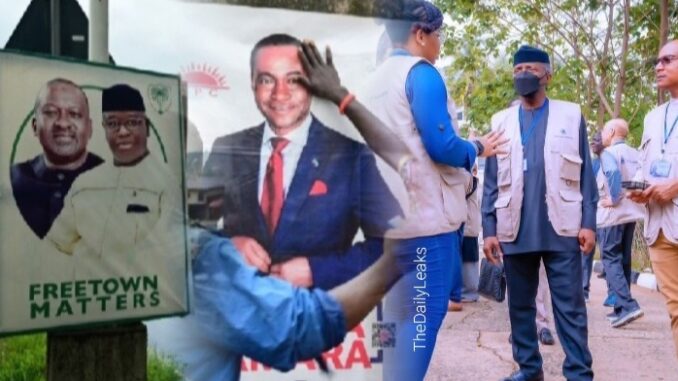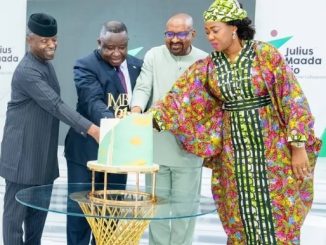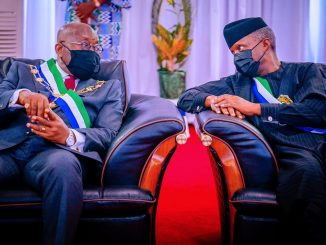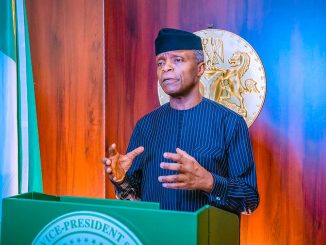
Voting was underway in Sierra Leone on Saturday in a national election which the main opposition party hopes will see public frustration with deep economic hardship foil President Julius Maada Bio’s re-election bid.
The people are set to participate in the high-stakes elections with the incumbent criticised for seeking a second term amid a crippling economic crisis that sparked deadly riots last year.
The deeply poor West African nation was battered by a brutal 1991-2002 civil war and the Ebola epidemic a decade later and further pummelled economically by the Covid pandemic and the fallout from the war in Ukraine.
In Saturday, June 24, 2023, fiercely contested general elections, 12 men and one woman are vying for the top job and incumbent Bio’s main challenger is Samura Kamara of the All People’s Congress (APC) party.
The two could face off for the second time in a row. Bio, 59, of the Sierra Leone People’s Party (SLPP), narrowly beat Kamara, who is aged 72, in a runoff in 2018.
Rising food prices are a key issue for many voters in the import-dependent nation of eight million people.
Year-on-year inflation hit 43 per cent in April, according to the latest official figures.
Both Bio and Kamara told AFP they would prioritise boosting agricultural production.
Commonwealth Observer Group
The immediate past Nigeria’s Vice President, Prof Yemi Osinbajo, SAN, is leading a team of distinguished experts who are members of the Commonwealth Observer Group (COG), to monitor and observe the general elections in Sierra Leone.
Before the expiration of his term in office as Nigeria’s VP, the Commonwealth Secretary-General, The Rt Hon Patricia Scotland KC, had announced Prof Osinbajo lead a team of 12-member COG team of experts selected across African Commonwealth nations to monitor the elections.
The Secretary-General said she constituted the observer group upon invitation from the Electoral Commission for Sierra Leone.
Prof Osinbajo is a Professor of Law and one of the nation’s leading legal experts, who served as Vice President of Nigeria from May 29, 2015, to May 29, 2023.
Prof Osinbajo, who is joined by recognised dignitaries from various fields including, politicians, legal, media, gender and election administration professionals from across the Commonwealth to carry monitor today’s election, addressing the media earlier during pre-election briefings had said his COG is joining hands with Sierra Leone in their journey towards democracy, unity, and peace.
ALSO READ: Osinbajo calls for credible elections in Sierra Leone
He said, “Our mission is observation, not interference, focusing on credibility, fairness, and transparency. It’s our shared love for democracy that unites us, not diversity that divides us. Wishing Sierra Leone a peaceful and credible electoral process.
Regional allegiances
Polling stations opened later than the scheduled time of 7:00 am in the capital Freetown, AFP journalists said, including in the central Wilberforce Barracks area. They were due to close.
Some 3.4 million people are registered to vote, 52.4 per cent of whom are under 35 years old, according to an electoral commission spokesman.
Presidential candidates must secure 55 per cent of valid votes for a first-round win.
Turnout has ranged between 76 and 87 per cent over the past three elections.
Voters will also elect members of parliament and local councils in a proportional representation system after a last-minute switch from a first-past-the-post system.
Under a recently passed gender act, one-third of all candidates must be women.
A new 11.9 per cent vote threshold will make it difficult for independents and minority parties to secure seats in Parliament.
Many Sierra Leoneans vote based on regional allegiances.
The majority of people in the south and east normally vote for the ruling SLPP while most people from the north and west normally vote for the opposition APC.
Jobs and benefits are commonly perceived to flow to regions whose politicians are in power.
Bio, a former coup leader in the 1990s, championed education and women’s rights in his first civilian term.
Kamara, a former foreign and finance minister, has lambasted the electoral commission for alleged bias in favour of the ruling party.
He is facing a protracted trial over allegations that he misappropriated public funds as foreign minister, a case he says is politically motivated.
Opinion polls
A June 14 poll by the Institute for Governance Reform (IGR), a partner of the pan-African survey group Afrobarometer, forecasts Bio will win 56 per cent of the vote, with 43 per cent for Kamara.
Another poll, conducted by the newspaper Sierra Eye and two local data groups, forecasts 38 per cent for the incumbent and 25 per cent for his main challenger.
The elections are being closely followed in West Africa, a region recently dominated by coups and turmoil.
A group of foreign ambassadors on Wednesday issued a joint statement calling for peace following reports of election-related “aggression.”
Security forces clashed with APC supporters Wednesday in the capital Freetown.
Last August, riots left at least 27 civilians and six police officers dead.
Online disinformation campaigns have contributed to the violence.




